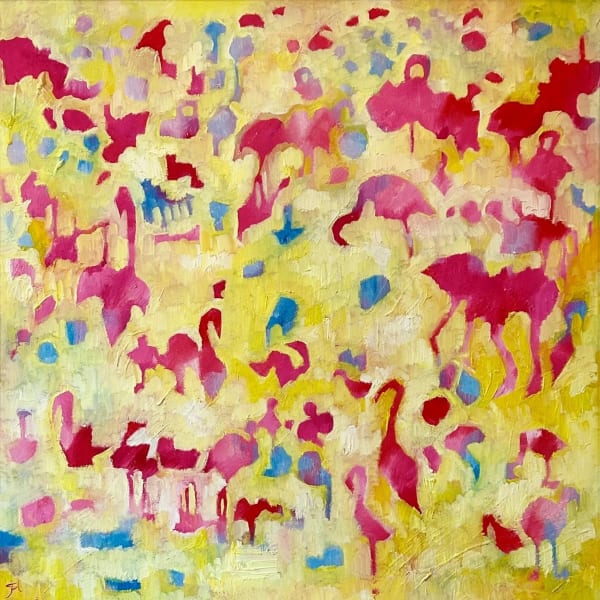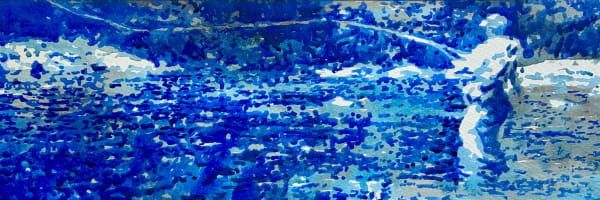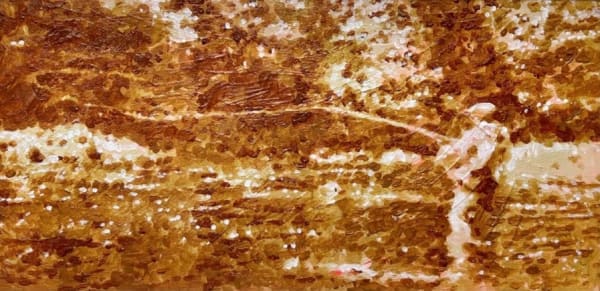Jeremy Houghton
-
 Jeremy HoughtonFOREVER AND A DAYWatercolour27 1/2 x 27 1/2 in£ 6,500.00
Jeremy HoughtonFOREVER AND A DAYWatercolour27 1/2 x 27 1/2 in£ 6,500.00
70 x 70 cm -
 Jeremy HoughtonHOT ON YOUR HEELSWatercolour19 3/4 x 19 3/4 in£ 3,950.00
Jeremy HoughtonHOT ON YOUR HEELSWatercolour19 3/4 x 19 3/4 in£ 3,950.00
50 x 50 cm -
 Jeremy HoughtonMERRY GO DANCE (2)Watercolour27 1/2 x 27 1/2 in£ 6,950.00
Jeremy HoughtonMERRY GO DANCE (2)Watercolour27 1/2 x 27 1/2 in£ 6,950.00
70 x 70 cm -
 Jeremy HoughtonLONG CASTWatercolour4 3/4 x 14 1/8 in£ 950.00
Jeremy HoughtonLONG CASTWatercolour4 3/4 x 14 1/8 in£ 950.00
12 x 36 cm -
 Jeremy HoughtonEAGERLY ANTICIPATED CATCHWatercolour4 3/4 x 14 1/8 in£ 950.00
Jeremy HoughtonEAGERLY ANTICIPATED CATCHWatercolour4 3/4 x 14 1/8 in£ 950.00
12 x 36 cm -
 Jeremy HoughtonTHE PATIENT GAMEWatercolour6 3/4 x 9 7/8 in£ 1,195.00
Jeremy HoughtonTHE PATIENT GAMEWatercolour6 3/4 x 9 7/8 in£ 1,195.00
17 x 25 cm -
 Jeremy HoughtonTESTING TIMESWatercolour7 7/8 x 15 3/4 in£ 1,500.00
Jeremy HoughtonTESTING TIMESWatercolour7 7/8 x 15 3/4 in£ 1,500.00
20 x 40 cm -
 Jeremy HoughtonFISHING ON THE TESTWatercolour5 7/8 x 9 7/8 in£ 1,200.00
Jeremy HoughtonFISHING ON THE TESTWatercolour5 7/8 x 9 7/8 in£ 1,200.00
15 x 25 cm -
 Jeremy HoughtonKNEE DEEPWatercolour6 3/4 x 9 in£ 1,200.00
Jeremy HoughtonKNEE DEEPWatercolour6 3/4 x 9 in£ 1,200.00
17 x 23 cm
Artist in Residence Jeremy Houghton uses the idea of ‘telling the unseen story’ to inform his considered approach to a number of high-profile commissions, which shift between the exceptional and the everyday, painting subjects ranging from Her Majesty The Queen to the excitement of high-end elite sport. The subjects that characterise these scenes are illuminated by his focus on the spaces in which bodies linger, shimmer, move and often take flight.
Over the last twenty years he has been invited to detail the life of a number of high-profile communities, from those at Windsor Castle and Highgrove to 2017’s Wimbledon championships, and the competitors at the 2012 Olympics and Paralympics. With each of these projects Houghton is interested in getting beyond public perception, documenting instead the everyday scenes that characterise events and places such as these below:
2018 Artist in Residence for the Centenary of the RAF
2017 Championship Artist at Wimbledon
2017 Artist in Residence for Sir Ben Ainslie Racing at the America’s Cup
2016 Official Artist for the James Hunt F1 40th Anniversary
2015 Artist in Residence at Goodwood for Lord March
2014 Artist in Residence at Windsor Castle for HM The Queen
2013 Artist in Residence at Highgrove for HRH The Prince of Wales
2013 Tour Artist for the Aston Martin Centenary Tour
2012 Official artist for the London 2012 Olympic Games
2011 Artist in Residence at Kamfer’s Dam (Flamingo Conservation)
2009 Artist in Residence at St James’s Palace for The Gentlemen at Arms
Although Houghton’s focus ranges quite widely, his technique remains a constant. Emphasis on painted shapes of light and space, contrasting against areas of bold colour, enables his subjects to glimmer in the liminal territory between figuration and abstraction. With extraneous detail removed, the paintings are hard to place, giving them an ahistorical quality that serves to underline their fluidity.
Houghton continually explores the potential of negative space to represent light, and often references ‘ma’, the concept in Japanese aesthetics that translates roughly as ‘gap’ or ‘pause’, and which in traditional practice helps balance the relationship between different areas of an image. This focus on the space between things lends his paintings, even when they are of something as solid as a horse or a racing boat, a surprising delicacy. Houghton holds his subjects on a very thin, almost invisible line between motion and the ability to transcend time.









